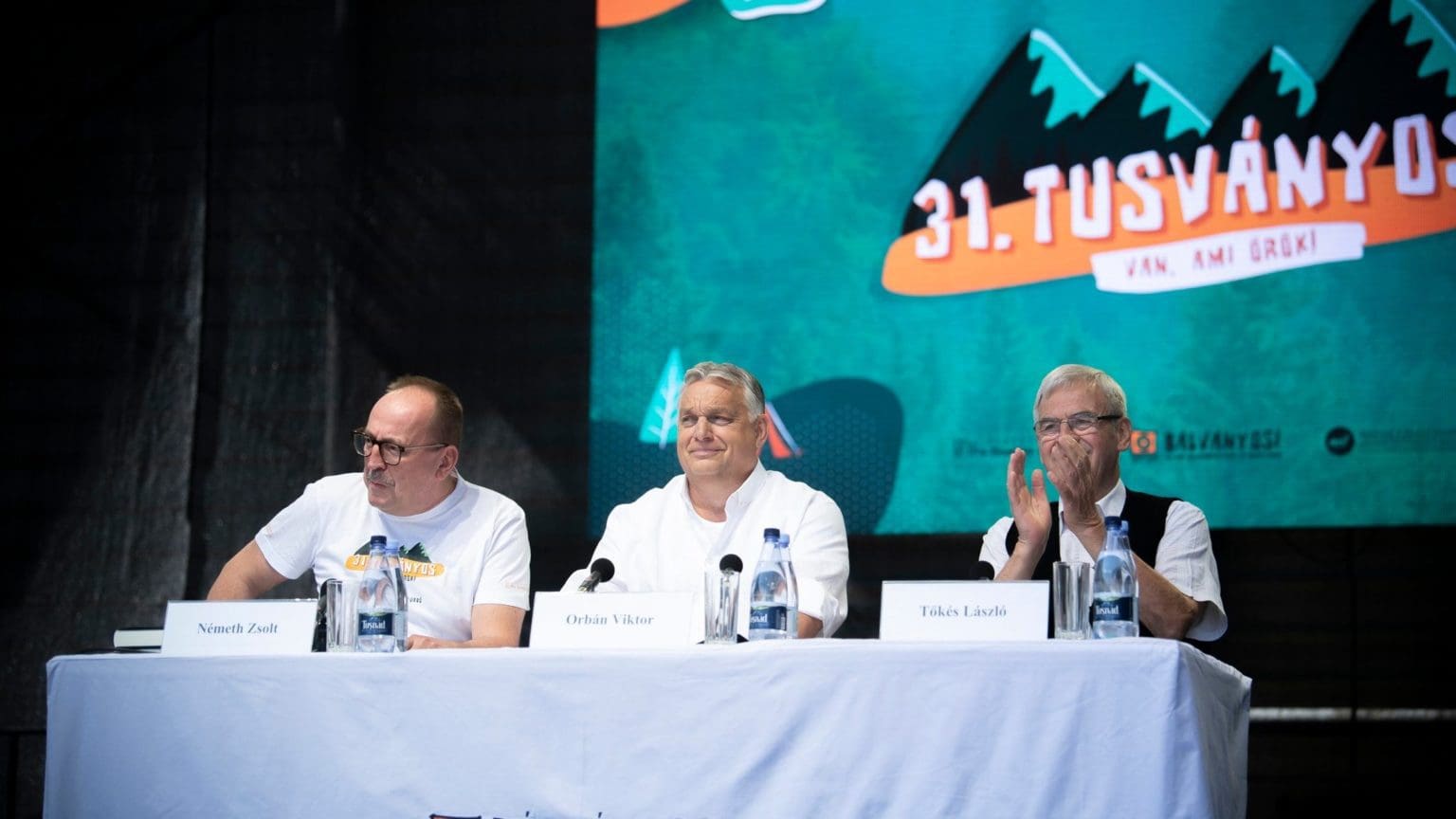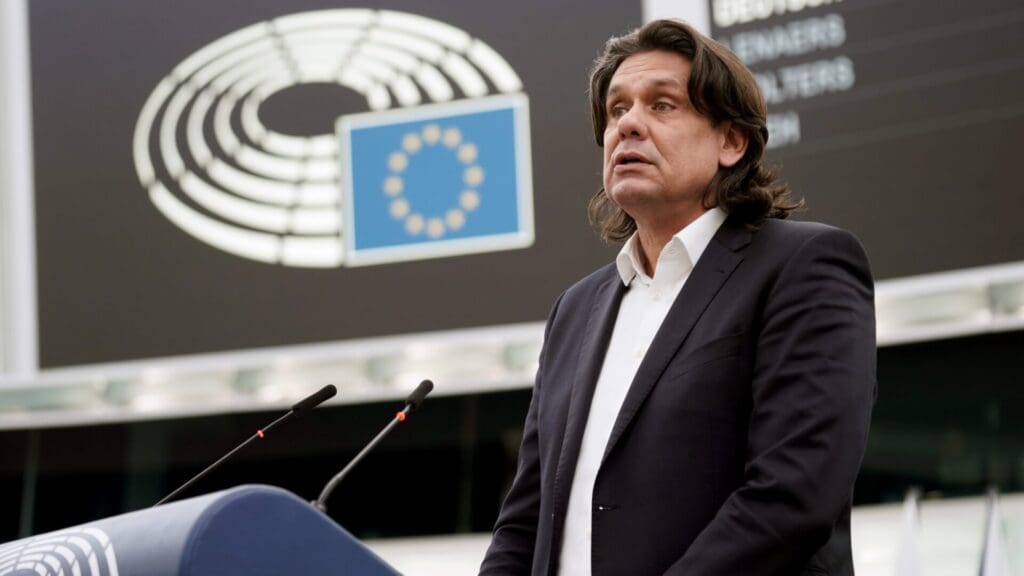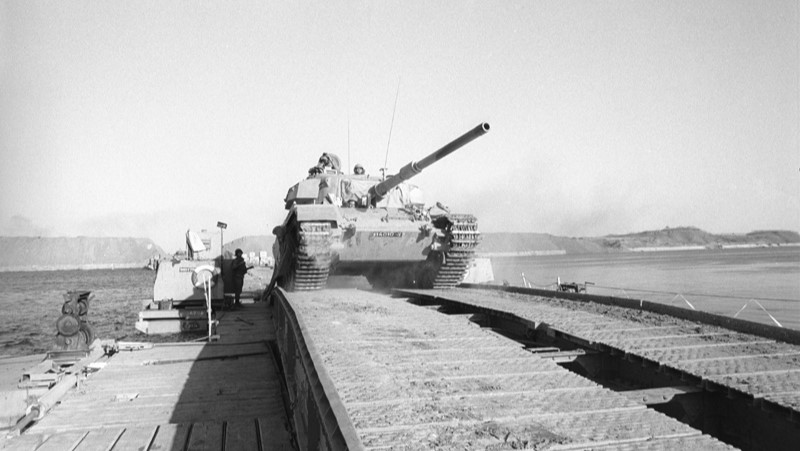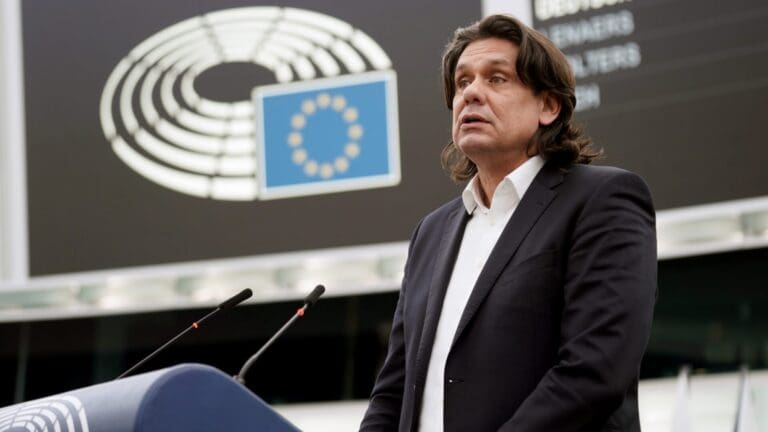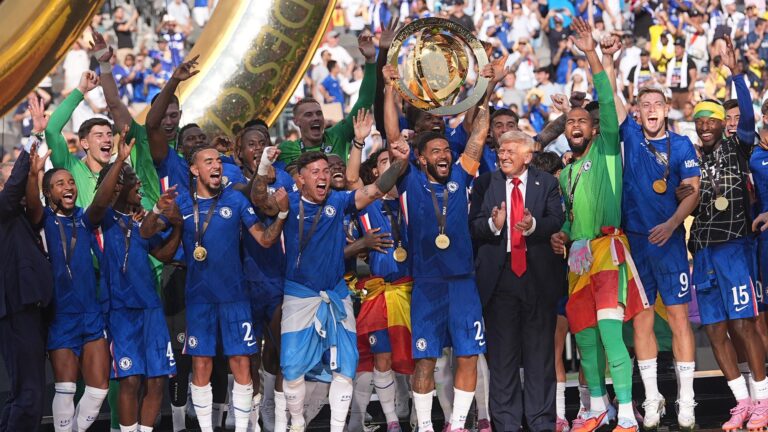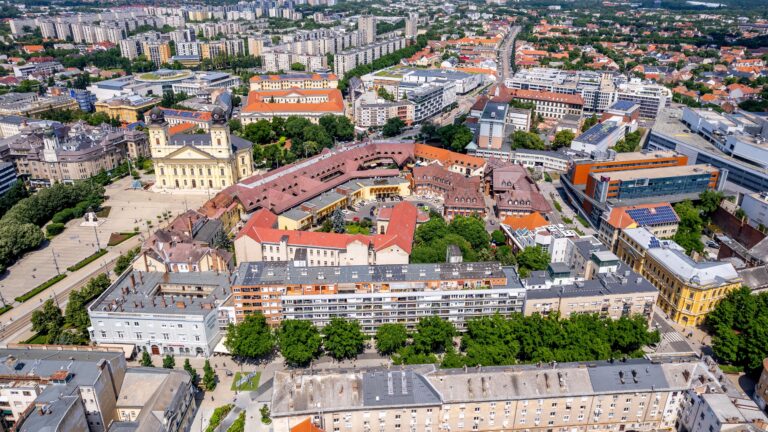We have already written about the historical and political significance of the Bálványos Summer University and Student Camp, also known as Tusványos, and how it became one of the biggest annual gathering places of the Hungarian right, where it can meets in a pleasant, informal setting. Tusványos also has symbolic importance as it is where Viktor Orbán delivers his now traditional speech each year, addressing the state of the country, the world and conservatism itself. Therefore, without further ado, let us cut to the chase immediately, because this year’s speech was nothing short of being the most radical yet most sensible guidelines ever established for Hungary and the West for the crises of 2022 and beyond.
Painful Lessons and the West’s Place in a Changing World
Prime Minister Orbán started with perhaps the most obvious observation about the period we are facing, which is going to be ‘a decade of dangers, of uncertainty and wars’. This uncertainty will accompany almost everything we know about politics, economy and foreign relations – and even everything we thought we knew. Because the last two years proved to us that our most basic assumptions of the world are often just that: assumptions, without actual merit. Three examples are apparent: we thought we were protected by science, yet we suffered a pandemic; we thought that the shadow of war has long passed from Europe, yet there is one raging on; and we thought that the Cold War mindset has been relegated to history, yet new global power blocs – physical and metaphysical – are rapidly emerging.
These all-encompassing uncertainties are giving rise to an underlying sentiment in just about everyone throughout Europe and North America: the feeling that the world is getting progressively worse. But this is ‘a fundamentally Western attitude to life’, Orbán warned, ‘which stems from the fact that Western civilization is losing its power, its performance, its authority, its capacity to act.’ And this is largely due to the fact that we have lost control of the energy sources and raw materials needed to influence the world. What we still have is the military power and the capital, but the question is, what are they enough for? The limits of the former are being tested by Russia, while the latter’s actual power grows more and more uncertain in the coming decade. Nonetheless, the West still has at least these two great cards up its sleeve, but it will have to play them right to keep its share of the pot.
The world is getting progressively worse
Familiar Answers to the Demographic Decline
Regarding the next eight to ten years of Hungary, the prime minister outlined all the greatest challenges the country will have to inevitably face, starting with what he thinks is the most important in the long run: demography. Truth is, he said, funerals still greatly outnumber baptisms, whether we like it or not. Yes, even though the extensive pro-family policies Hungary introduced in the last decade are in fact helping to alleviate the demographic crisis to a certain degree (with the birth rates steadily growing), but Hungary is still far from reaching the magical number of 2.1 children per woman – also known as replacement level. Unless there is a turning point, hinted Orbán, the nation will–at some point–quite simply disappear.
The second challenge according to Orbán is going to be migration. Explaining the current state of migratory tendencies into Europe, Orbán drew a sharp line between the western and eastern halves of our continent. The former is a world, he said, where European and non-European peoples live together, making them no longer ‘nations’, but mere ‘conglomerations of peoples’. In contrast, there is Central Europe, which has still retained its original character and therefore will be able–in an intellectual sense–to assume the mantle of the West. ‘The West is here, and what is left over there is merely the post-West’, proclaimed the PM. And yes, this may have been also the most controversial part of his speech (judging from the uproar it caused in international media), because Orbán went on to say that migration is causing Western Europeans to become ‘mixed raced’ nations, while Central Europe and Hungary, in particular, refuses to step onto that path. To be fair, it is unusual in today’s politics to hear something so unabashedly frank (perhaps the phrasing could have been more careful), but we cannot overlook the fact that what he said is essentially true. The Middle East and Africa (the two primary sources of European mass migration) ultimately represent two distinct Huntingtonian civilizations –complete with their own unique political and social customs as well as their own philosophy and morality–which are in many ways simply foreign to the European one. The mixing of countless people belonging to completely different socio-cultural backgrounds will inevitably have a transformative effect on all those participating in it, and Hungarians have already expressed their desire to stay out of the process. The sovereign will of the people must always be taken into account, regardless of whether we are in Western or Central Europe.
Finally, the third challenge Hungary will be facing on the demographic front is related to gender. We have already covered the slippery slope effect of forced gender ideology in our societies (which increasingly plays into the West’s declining birth rates), and the PM’s (and Hungary’s) position on it is also well known, mainly due to the child-protection law it passed last year. Therefore, Orbán summarized his message on gender as candidly as possible. ‘We are just asking [the West] to accept that in our country a father is a man and a mother is a woman, and that they leave our children alone’. As simple as that.

Ukraine: We Need New Strategies
After speaking about the harmful effects of identity politics, Orbán turned to the most pressing matter of our time, the war in Ukraine. The Hungarian perspective has not changed since the outbreak of hostilities in February, he told the audience, since the priority is the same: to stay out of them as much as possible, so that no Hungarian would have to die in someone else’s war. According to him it is not only reasonable but also quite possible to stay clear of the conflict: ‘Hungary is a NATO member and our starting point is that NATO is much stronger than Russia, so Russia will never attack NATO.’
‘We are sitting in a car with four flat tyres’
Yet, as much as this is a positive message, NATO and the West do have apparent and serious shortcomings in how they address the crisis. According to Orbán, there are four pillars on which the Western strategy has been built. These pillars are the assumptions that Ukraine–with ample Western support–is able to win the war against Russia; that the Western sanctions will weaken Russia significantly, destabilizing Putin’s rule; that these sanctions will hurt Russia more than they hurt our economies; and that the world will unite with us in our righteous support for Ukraine. Instead of the expected results, however, what we see is that all of these assumptions have turned out to be incorrect. ‘As a result of this excellent strategy, however,’ said Orbán, ‘today the situation is that we are sitting in a car with four flat tyres… If your car has four flat tyres, you have to change the wheels – all four of them.’
So, what is the new strategy the prime minister recommends for the West? Simple: instead of focusing on winning this war against Russia, we should focus on peace negotiations and designing a mutually beneficial offer. And yes, this is not the job of the government in Kyiv, but the responsibility of the West, and America’s in particular, whose continuous military aid does nothing but prolong the conflict at the expense of Ukrainian lives. ‘Since Russia wants security guarantees, the war can only be brought to an end with Russo-American peace negotiations’, Orbán declared.
Costly Economic Miscalculations
One of the first questions we have to ask regarding our current energy strategies, Orbán noted, is who benefits from this war? And the answer is, he said, those who produce their own energy. The West expected Russian energy revenues to drop sharply once it stopped buying from Moscow, but the opposite happened. Others from around the world were quick to fill the gaps left by Europe, and since the prices have risen significantly, the Russian energy giant Gazprom can now register twice as much profit than before the sanctions. China also profited from diversifying its energy sources, and so did the American corporations by selling at the increased price. The only clear loser seems to be Europe, which tripled the value of its energy deficit since the war started.
Economic growth will also turn negative this year in most countries of Europe, warned Orbán, causing general recession and political destabilization across the board. It is enough to think of all the governments that have already fallen victim to the financial crisis of 2022–namely the British, Italian, Bulgarian and Estonian–and which would probably be just the first pieces of a much longer line of dominoes. ‘The ancient Greeks said that the world could have two states: sometimes there’s order, that’s called cosmos, and sometimes there’s disorder, called chaos. Today, Europe’s economy is heading in the direction of the latter.’ Therefore, Hungary’s economic mission for the next period will be to find a way to become the one local outlier amidst the global recession. An ambitious goal, the PM admitted, but has to be tried nevertheless, as giving up is not an option. The most crucial period will be the first two years, until 2024, when, according to Orbán, depending on the outcome of the US presidential election, the first real chance for peace in Europe could emerge.

Source: KDNP
Ongoing Problems, Long-term Goals
In the last segment of his speech, the prime minister carefully outlining the agenda for at least the next eight years, underscoring that even though today’s problems call for swift, decisive actions in order to get us out of the ongoing crises, Hungary always keeps sight of its long-term plans as well. Why 2030? Based on what we’re seeing today, the problems of the West will by then reach a new breaking point, which will force both Western Europe and the United States to adapt to the new paradigm or perish with the old. Nonetheless, the same timeframe will also see Central Europe emerge in terms of economic power and influence within the bloc, and these countries need to be ready when the opportunity presents itself; not only for their own sake, but for the survival of the whole of Europe.
Conclusion: Fascist Madman, or Honest Visionary?
There are, perhaps, just two kinds of people with an opinion about Orbán’s Tusványos speech. Those who were there, listened to it or read it themselves, and those who read reports about it in mainstream legacy outlets throughout Western Europe and the US. Of course, a one-hour-long, heavily theoretical policy programme outlined in Hungarian isn’t something I would listen to myself if I was a foreigner, but at least I would admit that short reports could be somewhat skewed or biased. Those who have read through this article should already know that the speech was infinitely more than just that one remark everybody seems to be talking about. Based on a single sentence, many western pundits were quick to paint the grim picture of rising Hungarian fascism, even if nothing of the sort has been even implied.
The speech was infinitely more than just that one remark everybody seems to be talking about
The essence of the speech instead (which should be the focus of every report), is honesty. Every layman can tell that the West (and Europe in particular) is in great trouble. The course set by the continent’s political class in response to the Ukrainian crisis seemed a reasonable and viable plan back when the war started; now significantly less so. And if the course is wrong, first we need to admit that we were wrong to be able to change it, lest we risk crashing in the next curve. Too much pride never benefitted anyone in history, so it is time to recognize that and admit to the shortcomings of the Western strategy. I might be naïve, but I truly hope that Viktor Orbán will not be the only leader to do so, but merely the first and others will soon follow suit. If not, history will condemn those who had the ability to act, yet chose not to because of their ego. We do live in historical times, therefore it is time to start acting like historical figures. The way Viktor Orbán does.

